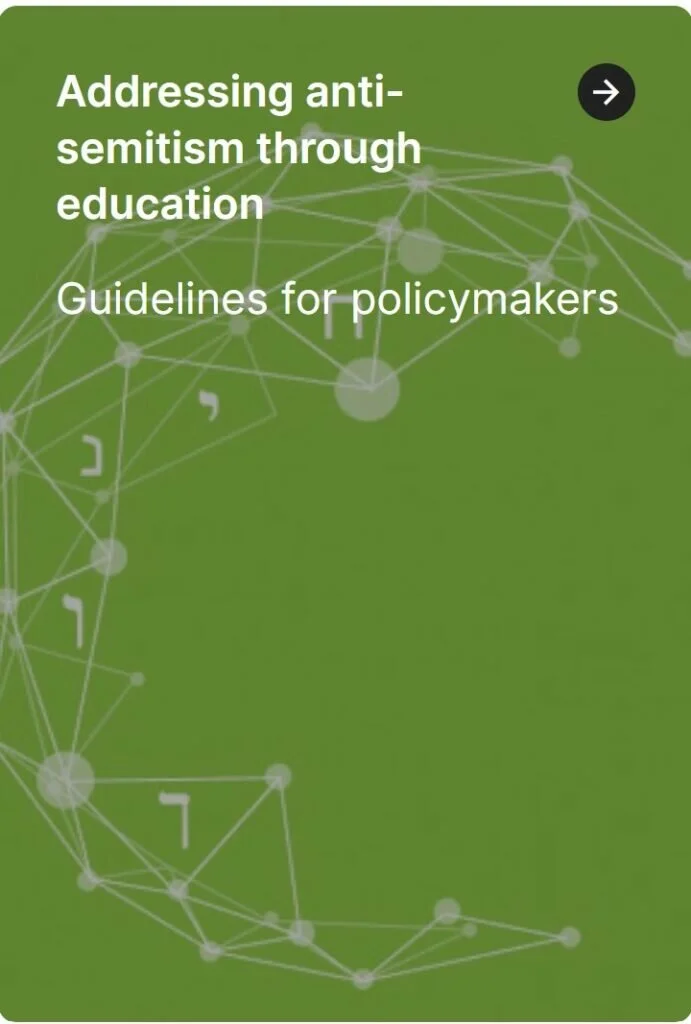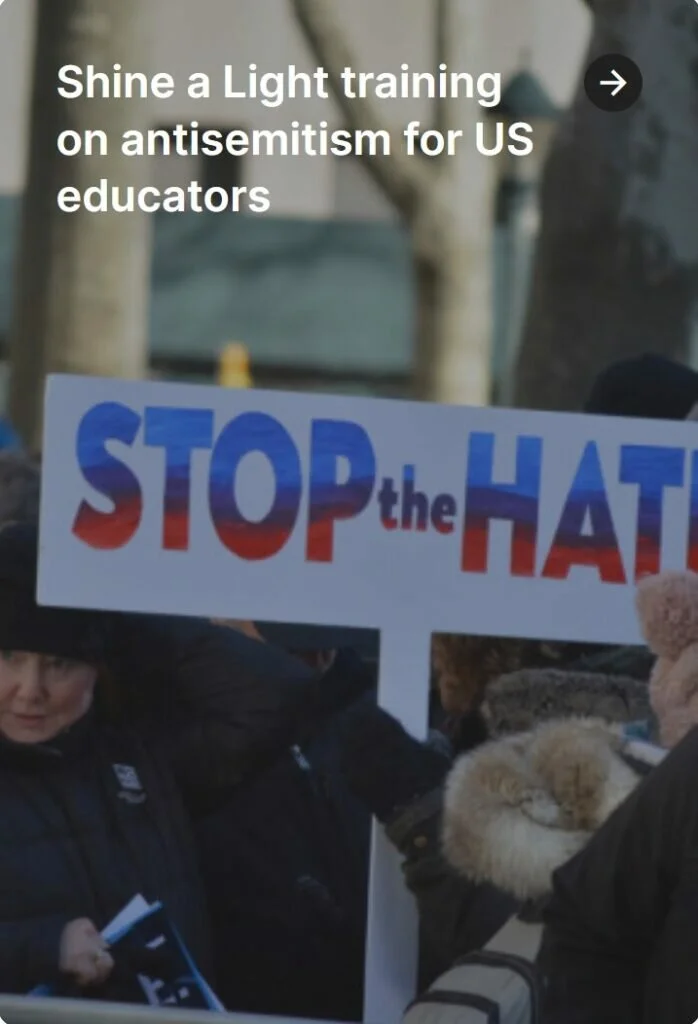UNESCO, the European Commission and the OSCE Office for Democratic Institutions and Human Rights (ODIHR) are launching a two-year project to address antisemitism in Europe through education. This comes in response to the growing threat antisemitism poses to the safety and security of Jewish communities and individuals across the continent. Reports show that nine out of ten (89%) Jews are increasingly dealing with hatred and discrimination in their country, with 44% of young Jewish Europeans experiencing antisemitic harassment.
Funded by the European Commission and supported by the OSCE/ODIHR, the new partnership on education, led by UNESCO, will work through tailored activities with 12 Member States across Europe, and provide capacity-building as well as research-based knowledge and recommendations for all EU member states. Teacher trainers and policymakers will receive training and guidance on ways to improve teaching methods, as well as activities and materials to better respond to antisemitism on a systemic level.
“Education is fundamental to tackling hatred and prejudice. Our joint responsibility is to harness its transformative power to build the resilience of teachers, schools and young people against antisemitism,” said Stefania Giannini, UNESCO’s Assistant Director General for education: “By doing so, we pay tribute to the memory of those who suffered from it and let all our societies, including the Jewish population, flourish”.
Margaritis Schinas, Vice-President of the European Commission said: “Education can strengthen young people’s resilience to antisemitic ideas and to all forms of intolerance and discrimination. This is why, as part of the EU Strategy on combating antisemitism and fostering Jewish life, we will support all EU Member States to train their teachers, education professionals and policy-makers so that they are fully empowered to address antisemitism in their classrooms and in their professions.”
Working in cooperation with national authorities in Austria, Belgium (Wallonie-Bruxelles), Croatia, Czechia, France, Germany (led by the states of Baden-Wurttemberg and Schleswig-Holstein), Greece, Italy, Romania, Slovenia and Spain, UNESCO will organise training events for educational multipliers including teacher trainers, policy-makers and civil society organizations.
Developing national strategies and training opportunities
EU countries have committed to developing national strategies on antisemitism as part of the EU’s Strategy on Combating Antisemitism and Fostering Jewish Life. UNESCO is supporting the EU in the implementation of the educational dimensions of these plans.
UNESCO will also provide online training opportunities for teachers and school directors from across the EU on topics such as countering Holocaust denial and distortion, responding to incidents of antisemitism in schools, and addressing conspiracy theories and online hate speech in the classroom.
The project involves further research into European teachers’ preparedness to address antisemitism through education, and the presentation of Jews, Judaism and antisemitism-related topics in school textbooks and curricula. UNESCO will also publish a handbook for teachers on effective pedagogies to counter antisemitism.
European Commissioner Mariya Gabriel said, “We are proud that such an impactful project to address antisemitism through education will be financed by the Erasmus+ programme, and have full trust in the expertise of UNESCO, its partner organizations and involved EU Member States to implement it. We need to ensure that every pupil in the European Union is able to recognize antisemitism, prejudice, disinformation, conspiracy theories, hate acts and discrimination for what it is.”
Why is it important?
Before the Second World War, around 9.5 million Jewish people lived in Europe, contributing to its social, political, economic, scientific and cultural development. Jews across Europe have experienced centuries-long discrimination and hostility manifested in expulsions, harassment and pogroms. Antisemitism was at the foundation of the systematic persecution and extermination of six million European Jews by the Nazi regime and its collaborators during the Holocaust.
Because of this legacy, and in a framework of respect for fundamental rights and freedoms, European countries have committed to ensure that societies are resilient against any resurgence of antisemitism.
Today, the Jewish population in the EU counts up to 1.5 million people. Every second European considers antisemitism as a problem. In recent years, antisemitic conspiracy theories inspired multiple deadly attacks, such as on the Ozar Hatorah school in Toulouse in 2012, the Jewish Museum in Brussels in 2014, the Hypercasher supermarket in Paris in 2015, and the Halle Synagogue in 2019. The impact of contemporary antisemitism is not limited to Jewish people – for instance, it fuelled hate and conspiracy that led to an attack on an LGBTQ+ café in Bratislava in November 2022. It also spans beyond Europe, with similar acts of violence having occurred in New Zealand and the United States.
European Jewish Congress President, Dr Ariel Muzicant, said: “The development of programmes for educators to address contemporary forms of antisemitism is intrinsically in line with the EU Strategy on combating antisemitism and fostering Jewish life adopted by the European Commission in 2021. It is vital to find innovate ways to combat anti-Jewish hatred and the European Jewish Congress very much welcomes this important initiative that will definitely have a significant impact in the educational world.”
UNESCO is committed to the collective effort to address antisemitism on all levels to ensure human rights and safety for all. In close cooperation with Member States, UNESCO works to mainstream through education the critical importance of values such as respect for diversity, solidarity, shared sense of humanity and commitment to peace and sustainable development.













